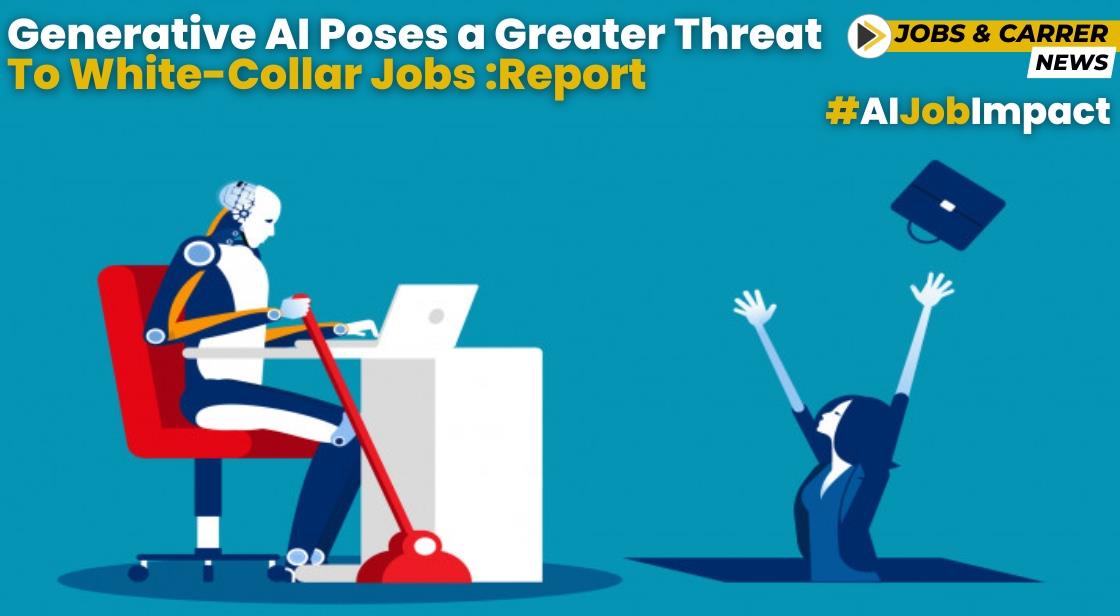Generative AI Poses a Greater Threat to White-Collar Jobs: Report

News Synopsis
Impact of Generative AI: White-collar vs. Blue-collar Jobs
Emerging trends suggest that Generative AI could significantly impact the job landscape, posing a more substantial threat to white-collar professions compared to blue-collar roles, according to a report released recently.
Generative AI's Impact on Job Roles:
The report, titled 'Gen AI Proof Jobs' by global learning company Pearson, emphasizes how administrative tasks commonly found in white-collar jobs, like scheduling appointments and managing calls, are susceptible to replication by Generative AI. These repetitive tasks make up a significant portion of various administrative roles and are easily adaptable to AI-based solutions.
Regional Insights and AI Utilization:
The report specifically highlights insights from India, where over 30% of time spent on certain white-collar tasks can potentially be automated using Generative AI. Conversely, the report notes that Generative AI accounts for less than 1% of a blue-collar worker's weekly responsibilities.
Preparing for AI Disruption:
Mike Howells, President of Pearson Workforce Skills, stressed the importance of anticipating job roles at risk due to AI disruption. He urges both employees and employers to consider the potential creation of new roles facilitated by Generative AI. Howells emphasizes the need to combine AI's capabilities with human skills for an optimal workforce strategy.
Least Impacted White-Collar Jobs
The report also identified the white-collar jobs least likely to be affected by generative AI. These include:
- Chief executives (10%)
- Civil engineers (10%)
- Electrical engineers (11%)
- Sales managers (13%)
- Architectural and engineering managers (13%)
Key Findings from Pearson's Skills Outlook:
The 'Gen AI Proof Jobs' series by Pearson, analyzing more than 5,000 jobs across Australia, Brazil, India, the US, and the UK, highlights the impact of Generative AI. In India, roles such as accounting and book-keeping clerks, word processor operators, administrative secretaries, stall and market salespersons, and accountants are projected to be most affected in the white-collar job domain.
Blue-collar Job Impact:
In the blue-collar job landscape, roles like weavers, knitters, basketry weavers, brush makers, machine operators in weaving and knitting, waiters, bartenders, bakers, pastry and confectionery makers are anticipated to face a moderate impact from Generative AI, as outlined in the report.
Key Takeaways
- Generative AI poses a greater threat to white-collar jobs compared to blue-collar roles.
- Many administrative tasks can be easily automated using generative AI.
- Jobs such as accounting, bookkeeping, and word processing are among the most at risk.
- Blue-collar jobs are expected to be less affected by generative AI.
- Employees and employers should prepare for the AI-driven future by understanding its impact and upskilling accordingly.
You May Like









